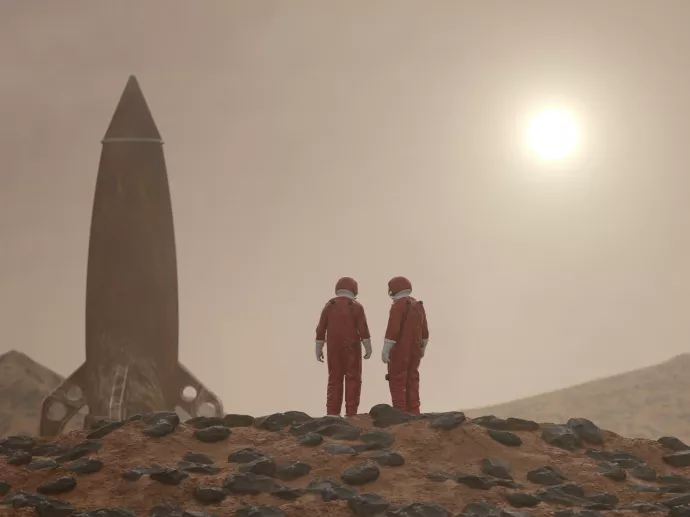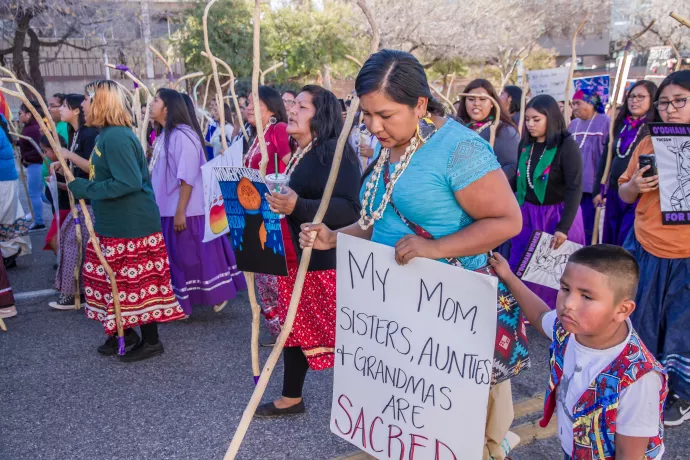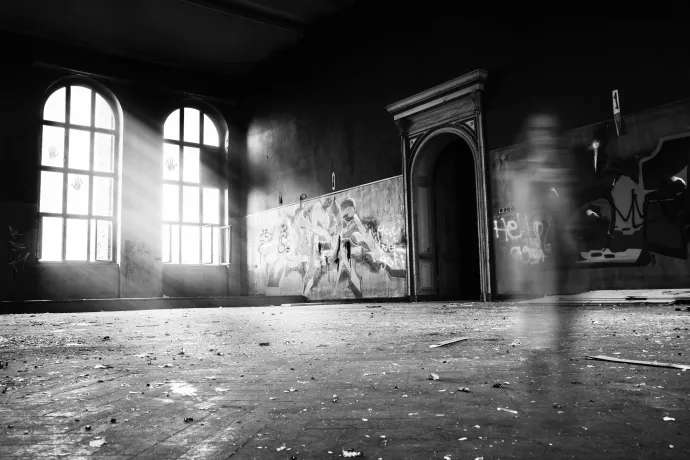
From Racist Robots to the Indian Act to Spirit Photography: What’s new in the 2021/2022 UTM course catalogue
It’s not just the school year that’s new – there’s also a new crop of courses to choose from.
Here are just a few of the fresh offerings in the 2021/2022 course catalogue:
Is your soap dispenser racist?
How does technology affect our ideas about disability, race and gender?
The Department of Anthropology will examine the question in its new third-year course Disabled Cyborgs and Racist Robots: Bodies, Technologies, and Social Justice (ANT355H5), which encourages students to reimagine the relationship between technology, the human body and social justice.
“Did you know that automatic soap dispensers were designed to recognize hands with light but not dark skin? Did you ever wonder why high-tech prosthetic legs are considered cool in a culture that stigmatizes disability? Do you know how algorithms predict what text you'll write?” says assistant professor Zoë Wool, who specializes in medical anthropology, sociocultural anthropology, disability, US war-making, toxicity, science and technology studies, queer theory, the body and the history of neurology. “It’s easy to ignore how our experiences with technology connect us to broader social and historical forces. We'll focus in particular on how technology reproduces both racism and ableism and also how we can reimagine technology for a more just world.”
The course will run in the winter semester.
Space to think
The new fourth-year course from the Department of Communication, Culture, Information and Technology is thinking not just outside of the box, but beyond the planet.
Media and Outer Space (CCT435H5) will investigate military, technological, industrial, scientific, design, artistic and civilian projects, films, novels, science fictions and other media forms, to reveal the historical, social, cultural and political implications of our mediated relation with outer space.
“At this juncture, Media and Outer Space asks: Is space exploration a continuation of terrestrial bias and unequal mediations?” says course teacher assistant professor Marie-Pier Boucher, citing the example of the Apollo-Soyouz program using the Androgynous Peripheral Assembly System (ASAP) for its docking system as an alternative to the male/female connectors because no nation wanted to embody the “female” section of the docking system. “Or is space a location whereby to imagine and to create new technologies that expand human existence into alien experiences, unforeseen value systems and unfamiliar modes of doings?”
Boucher’s own research includes the design of habitats for sustaining life in extreme environments.
“Space exploration would not be possible without media technologies: our individual and collective daily dependence on satellites in Geostationary Earth Orbit (GEO), Geo Positioning Satellite (GPS), space suits and space capsules, remote sensing technology and space telescopes — to only name a few — is evidence that humanity’s relationship with the cosmos is a mediated one,” she says. “Space exploration challenges assumptions about orientation, body, experience, perception, territory and distance that underpin earthly geo-political, social and cultural systems, and which are encoded into our design of — and engagement with — many other kinds of media technologies.”
The course will explore such topics as the space race and the Cold War, space imagery, extreme environments, travel, suits, vehicles, habitats, satellites, extra-terrestrial intelligence, mining, extraction, terraforming, radiation, gravity and levitation.
“In this class, students will engage with the central role of media tools developed for space exploration to reflect on the history of space exploration and to devise creative models to transform the way in which we inhabit the Earth and the cosmos in the present and foreseeable future,” she says.
Caught in the Act
First passed in 1876, the Indian Act defines how the Canadian government interacts with the country’s First Nations communities in such areas as governance, land use, healthcare and education.
To explore this often-controversial document, the Department of Sociology has created a new third-year course entitled The Indian Act: Canadian Law, Sovereignty and Indigenous Womxn (SOC339H5). The class, which will begin in the spring, is taught by assistant professor Yvonne Sherwood, a member of the Sp'q'n'iʔ (Spokane and Coeur d’Alene) tribe, born and raised on the Yakama Nation Reservation in Washington State.
“In discussions about Indigenous Peoples and law, the Indian Act is one of the most cited pieces of Canadian legislation,” she says. “From explaining the history of residential schooling to violence against Indigenous womxn, critical and Indigenous scholars turn to the Indian Act as a key source and problem space.”
Sherwood specializes in Indigenous feminisms, settler Colonial analysis, socio-legal analysis, social movements, critical pedagogy, feminist critical race and ethnicity.
“We will center the work of Indigenous feminist scholarship to understand why scholars argue that the act is still both required and a site of contestation, violence and genocide, and how we are each affected by its governance,” says Sherwood.
Spirited away
For those seeking something a little further off the beaten path, Louis Kaplan, professor of History and Theory of Photography and New Media, is leading a new third-year course Spirit Photography (FAH317H5), starting with the emergence of ‘phantasmagoric visual entertainments’ in the 1800s.
This marks the return of this popular subject to the Department of Visual Arts catalogue: it was offered at the 400 level a few years ago under the ‘Topics in Modern Art History’ rubric.
Exploring examples from Europe, North America, Japan and the Philippines, this winter term course considers why people have been fascinated by these phenomena, from believers like the followers of the religious movement of Spiritualism, to those who sought to debunk it as a hoax or fraud, including Harry Houdini and P.T. Barnum.
“This course not only looks at haunted images, and the claims made both for and against ghosts in photos, it also wants students to think about the nature of photography itself as a haunted medium,” says Kaplan, author of The Strange Case of William Mumler, Spirit Photographer. “Indeed, the spooky relationship between technology and the occult runs from photography to contemporary cyberspace.”
Students will explore the philosophical and psychological significance of spirit photography, through such constructs such as hauntology, spectrality, the uncanny and the work of mourning. The course also looks at how contemporary artists such as Tony Oursler and Zoe Beloff have incorporated motifs of spirit photography in their works.
Education without oppression
The Education Studies Undergraduate department is in the process of developing a new course for 2022 entitled Black Education (EDS291H5).
This second-year course investigates first-hand experiences and contributions of black students and teachers in the Canadian education system. Historical, systemic barriers to access will be studied along with current policy, practice and teaching pedagogies that aim to produce systems of education without oppression.
“Students who take the EDS Black Education course are curious, critical thinkers who are interested in exploring theory and scholarships in black futurism and the black experience,” says EDSU Coordinator Liz Coulson. “They are engaged in confronting issues of systemic racism and anti-discrimination as they consider ways schools, teachers and students are essential partners in proactively breaking down systemic barriers. Students taking the class are imaginative thinkers who seek to redefine, better understand and implement more fully inclusive practices and pedagogies.”
By looking specifically at research focused on black schooling in Ontario, students in this course will engage in policy analysis and assess current Afrocentric schooling models to assess effectiveness in eliminating educational inequality. Drawing on principles of equity and diversity, Afrofuturist scholarship will be emphasized and provide the framework that seeks to understand and investigate the past to better inform education’s future.
EDSU has recently received an access grant in collaboration with Ontario Institute for Studies in Education (OISE) to advance pathways for black students in teacher education and this course will connect with that work. They have also forged a partnership with the Black futurism project at Hart House to support the course development and have developed an advisory board to support the course development. This summer, the department ran a high school course pre-university course in Halton to expand teacher education pathways for black students.
The recommended preparation for the new course is EDS220H5.
Mind your money
And finally, no matter what your major or future goals are, everyone can benefit from having a solid financial foundation.
Financial Planning for Individuals (MGT150H5), a new first-year course from the Department of Management, is directed at students not necessarily enrolled in accounting or finance but who are interested in learning more about how to manage their money.
Topics include budgeting, borrowing, investing, insurance, retirement planning and personal income tax, taught by Chartered Professional Accountant Peter Thomas.
For more on UTM’s newest courses, visit https://utm.calendar.utoronto.ca/new-programs-and-courses
